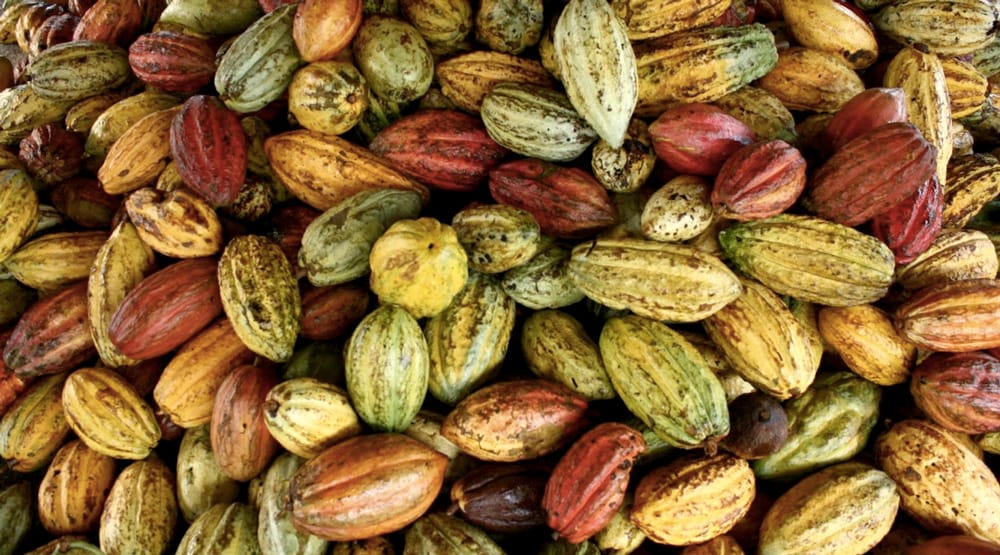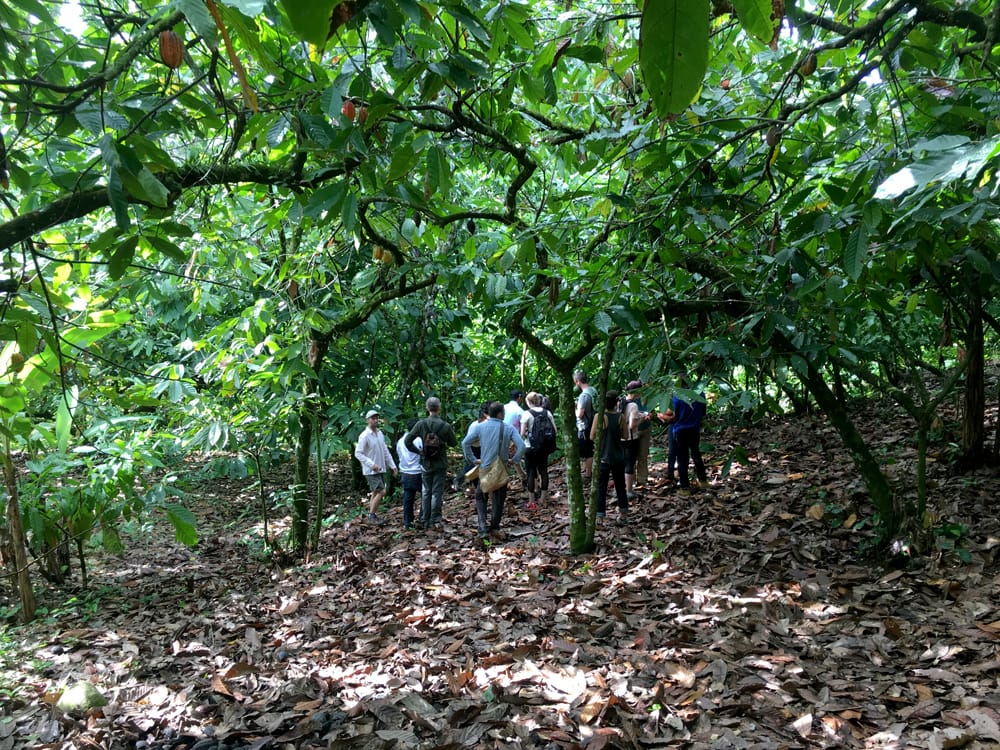Endorfin Foods is a Berkeley-based, small business that creates craft chocolate bars, made with only the highest quality ingredients, including single origin bars and a unique range of flavored and inclusion bars.
Endorfin Foods founder, Brian Wallace, visits Bauman College’s Berkeley location once a term to talk to the Natural Chef students about the health benefits of chocolate, sustainable sourcing practices, and to provide tastings of cacao beans and delicious Endorfin Foods products.
After trying whole cacao beans for the first time, Brian Wallace quickly realized that the “chocolate” he’d had most of his life was so over-processed and diluted with refined sugar and milk that it barely resembled the original food crop from which it was derived. He became inspired to create a new style of chocolate, one that synthesized classical European crafting techniques, modern nutritional research, and the medicinal and spiritual uses of cacao familiar to ancient Central and South American cultures. Several years and hundreds of recipes later—after quitting his job and travelling the world in search of the perfect cacao bean—he founded Endorfin Foods to reintroduce cacao to the modern world as the delicious, uplifting ‘food of the gods’ that it once was.
At Endorfin Foods, quality and sustainability are of the utmost importance. We formulate each of our recipes from scratch using the highest quality, fine flavor cacao we can find, employing just the right amount of whole food sweeteners, spices, and essential oils to let the brilliance of the ingredients speak for themselves. We are committed to sourcing 100% of our cacao from agroforestry farms at far above market rates to support small farmers who steward the jungles.

What is Agroforestry?
Central and South American communities have been growing cacao for millennia using an ancient system referred to as agroforestry. This farming technique honors local biodiversity; respects the integrity of the ecosystem beyond the cacao trees; and provides built-in protection from disease, pests, and drought. Since this cultivation model is closer to the natural jungle environment, many plants and animals are able to live in the ecosystem; diverse, beneficial soil microbes and fungi thrive; and soils are replenished over time with ample, naturally decaying matter.
On an agroforestry farm, a variety of plants and trees are grown together. Hardwood trees provide shade, which encourages a healthy soil microbe community; fruit trees and nitrogen-fixing plants are grown beneath the shade trees; and food crops and medicinal plants are grown beneath the tree canopy. Agroforestry systems also sequester more carbon from the atmosphere, slowing the effects of climate change. This style of agriculture is much more akin to tending the wild jungle.
Sadly, less than 10% of the world’s cacao is produced in agroforestry ecosystems. Most cacao is grown in monoculture plantations. Jungle is typically burned or cleared in its entirety to make way for rows of cacao—and nothing else. Pests, mold, and mildew are always a challenge for farmers and the use of pesticides and herbicides are common in this type of farming, though they deplete the soil and harm the local ecosystem.
Farmers are often pushed beyond their means and struggle to keep up with the rapidly increasing global demand for chocolate. Cacao farmers are frequently some of the most economically challenged cultivators on the planet, living on an average of $2 a day, and many are choosing to transition to growing other, more profitable crops.
In response to these issues, Endorfin Foods is committed to sourcing 100% of our cacao from agroforestry farms at far above market rates as a way to support small farmers and regenerate jungle ecosystems.

3 Reasons to Choose Agroforestry Cacao
1. Smallholder Farmers
Smallholder farmers are those who own small plots of land and rely primarily on family labor to harvest crops. Plants and other organisms that live in a biodiverse, agroforestry system naturally complete their life cycle, decompose, and fertilize the soil over time. This natural process creates a layer of mulch that prevents the soil from drying out, reduces the need for irrigation, and eliminates the need for agrochemical fertilizers. Therefore, agroforestry cacao farming is significantly less input and labor intensive than the monoculture model, making it far more profitable and sustainable for farmers with limited land, who typically lack the resources to purchase pesticides and herbicides.
2. Biodiversity
Increased crop biodiversity protects all of the plants, animals, and living creatures naturally present in an ecosystem. Cacao is a mid-canopy tree when it grows in the wild, so it thrives in partial shade. When farmers plant taller, hardwood trees with cacao in an agroforestry system, they provide shade and help the cacao trees grow. Mature hardwood trees can later be harvested for timber and provide additional income for farmers. Additionally, agroforestry preserves jungle habitat, which means the entire community of birds, mammals, and other creatures that call the jungle their home always have a place to live.
3. Climate Change Mitigation
Nearly 30% of global greenhouse gas emissions are a direct result of agricultural food production for Earth’s 7+ billion human inhabitants. When we support agricultural systems like agroforestry which sequester large amounts of atmospheric carbon, we balance out unsustainable farming practices in other industries. The tropical parts of the earth—where cacao grows exclusively—are quite literally the lungs of the planet, “breathing in” CO2 en masse, sequestering it in the soil, and slowing climate change for generations to come.
Conscious Consumerism
As a conscious consumer, you can support sustainable food practices like those discussed above by increasing your awareness of where your food comes from and how it is grown and processed. Together, we can build a better world for future generations to come and continue enjoying delicious, health-supportive foods, like chocolate.